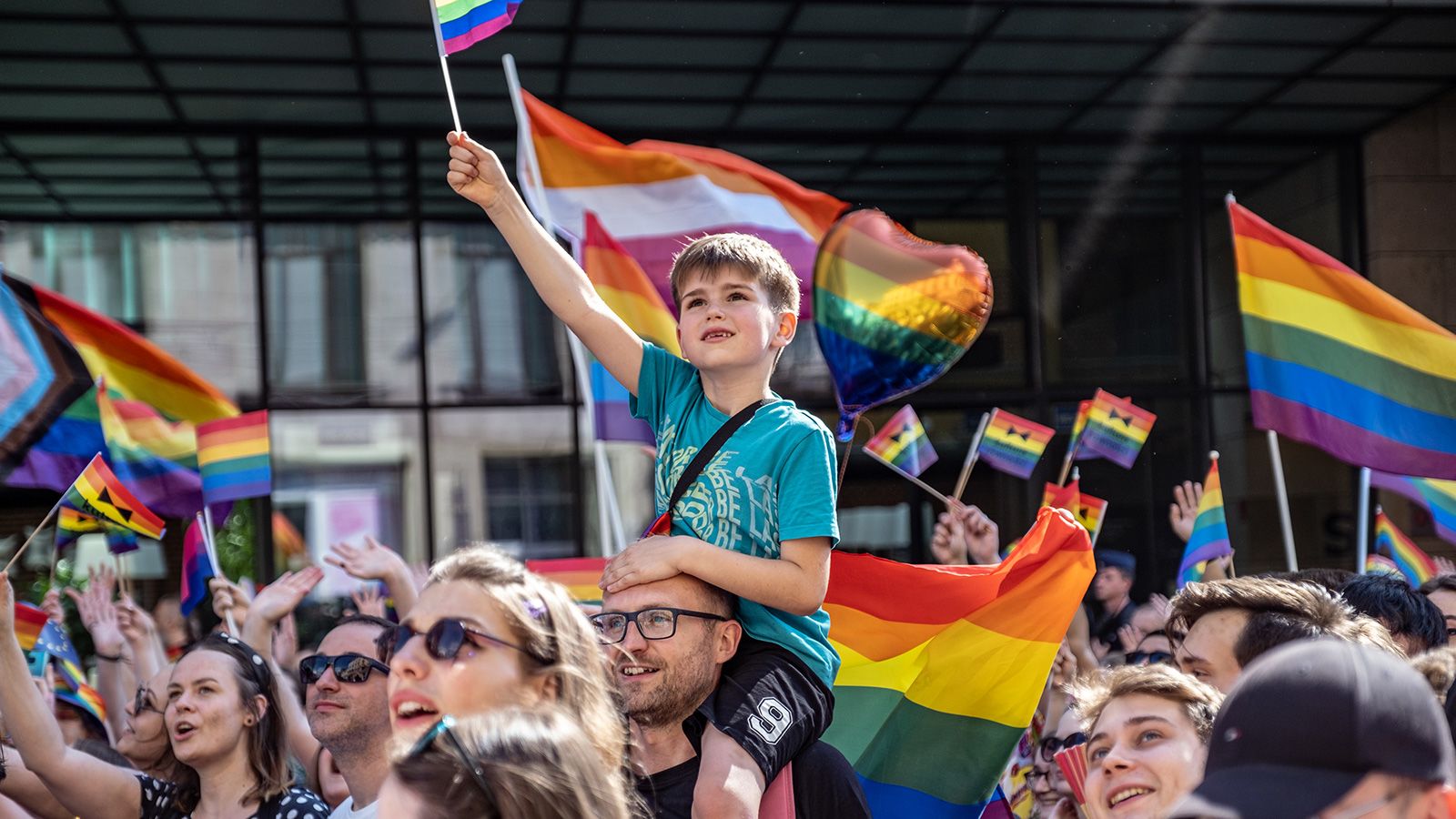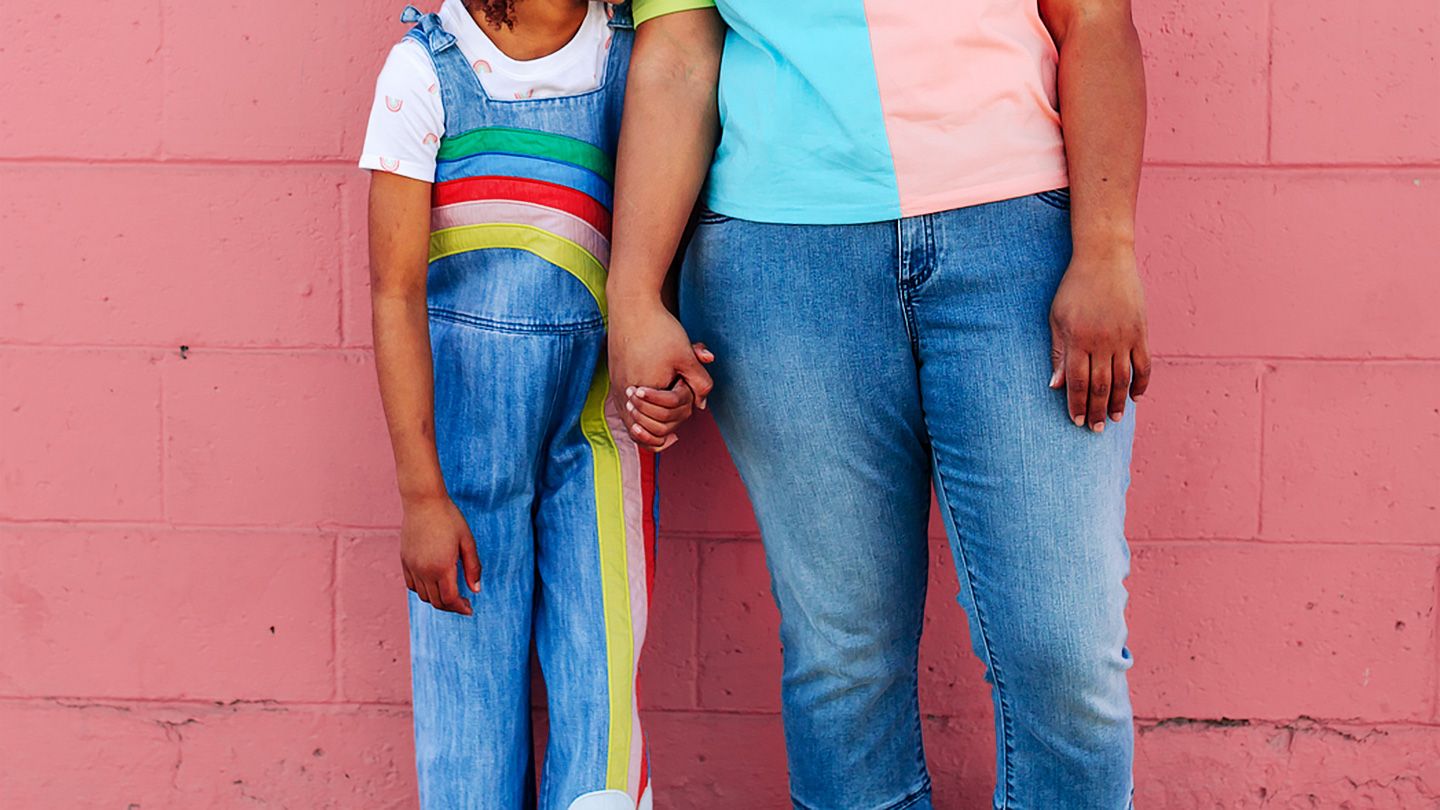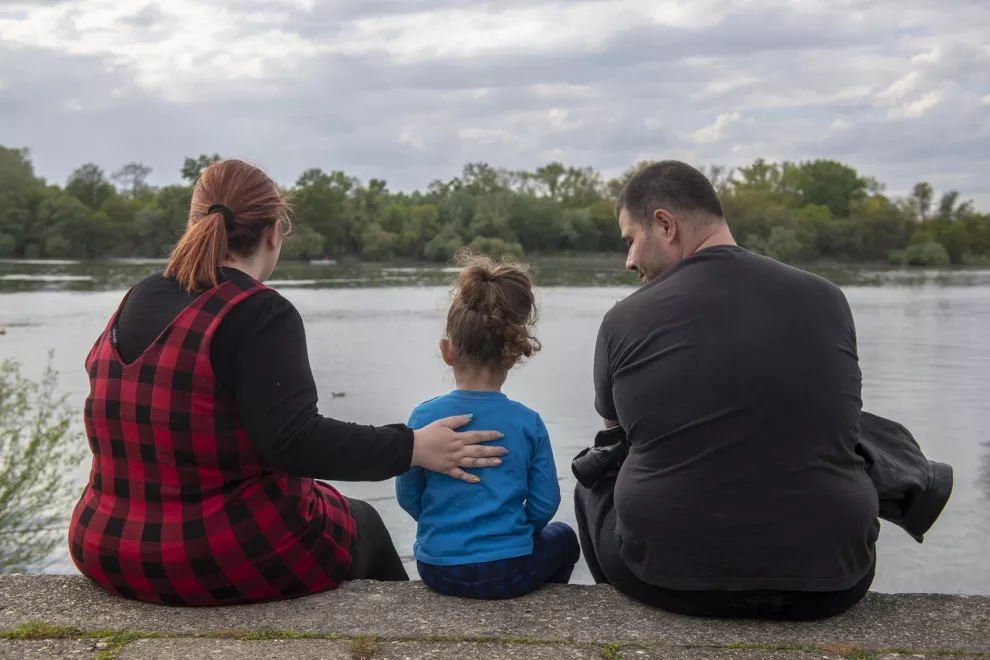Comprehending LGBTQ+ Youth Mental Health: A Parents Perspective
Understanding and supporting your LGBTQ+ youth’s mental health requires empathy and education. Providing a safe and accepting space at home is essential for their well-being. Recognizing the challenges they face and offering unconditional support fosters their resilience. Consider seeking professional help and resources customized for LGBTQ+ youth. Embracing their identity journey and encouraging open communication can have a positive impact on their mental health. By prioritizing their mental well-being and fostering a supportive environment, you play an important role in their happiness and self-acceptance.
Key Takeaways
- Understanding LGBTQ+ youth challenges aids support.
- Parental acceptance fosters mental well-being.
- Creating safe spaces at home encourages open dialogue.
- Educating oneself on LGBTQ+ issues is crucial.
- Seeking professional help promotes mental health.
Understanding LGBTQ+ Youth Mental Health

Understanding LGBTQ+ youth mental health is essential for creating a supportive and inclusive environment for these individuals. Mental health awareness plays a vital role in ensuring the well-being of LGBTQ+ youth. By being attuned to their unique challenges and needs, you can provide the necessary support and resources to foster a positive mental health outlook.
Creating supportive environments for LGBTQ+ youth involves more than just acceptance; it requires genuine understanding. Taking the time to listen to their experiences, fears, and aspirations can go a long way in building trust and rapport.
Your willingness to learn about the specific mental health concerns that LGBTQ+ youth face demonstrates your commitment to their overall well-being.
Challenges Faced by LGBTQ+ Youth
Challenges faced by LGBTQ+ youth can vary greatly and have significant impacts on their mental health and overall well-being. One key challenge is the lack of peer support. LGBTQ+ youth often struggle to find acceptance and understanding among their peers, leading to feelings of isolation and loneliness. This lack of support can exacerbate mental health issues and contribute to a sense of not belonging.
Additionally, societal discrimination and stigma can take a toll on the mental well-being of LGBTQ+ youth. Constant exposure to negative attitudes and prejudice can lead to anxiety, depression, and low self-esteem. The fear of rejection and discrimination can also prevent LGBTQ+ youth from seeking help or being open about their identities, further impacting their mental health.
It is vital for LGBTQ+ youth to have access to supportive environments and resources to navigate these challenges. Cultivating peer support networks and promoting acceptance can play a significant role in improving the mental well-being of LGBTQ+ youth.
Parental Support and Acceptance

Parental support and acceptance greatly influence the mental well-being of LGBTQ+ youth, shaping their sense of self-worth and resilience in the face of societal challenges. As a parent, your understanding and essential love play an important role in your child’s mental health journey.
By accepting your child for who they are and fostering open communication, you create a safe space for them to express their thoughts and feelings without fear of judgment.
Your support can make a significant difference in how your LGBTQ+ child navigates the complexities of their identity. Demonstrating acceptance helps them build confidence and self-acceptance, which are crucial for their overall well-being.
Through open communication, you show that you’re there to listen, understand, and support them unconditionally.
Impact of Stigma on Mental Health
Vital Stigma surrounding LGBTQ+ identities greatly impacts the mental health of youth in this community, often leading to increased levels of stress, anxiety, and depression. Mental health stigma can manifest in various forms, from derogatory remarks to exclusion and discrimination. These negative attitudes and behaviors can create a hostile environment for LGBTQ+ youth, making them feel isolated and unworthy. The constant fear of judgment and rejection can take a significant toll on their mental well-being, leading to feelings of shame, guilt, and inadequacy.
The impact of stigma on mental health is profound, with many LGBTQ+ youth experiencing higher rates of depression and anxiety compared to their heterosexual peers. The constant need to hide or suppress their true selves in fear of societal backlash can result in internalized stigma, further exacerbating mental health struggles.
It’s essential for parents and caregivers to provide a supportive and accepting environment to counteract the damaging effects of stigma on their children’s mental health. By fostering a sense of belonging and understanding, parents can help mitigate the harmful consequences of societal prejudice and discrimination on LGBTQ+ youth.
Navigating Identity and Self-Expression

Exploring one’s identity and expressing oneself authentically can be a complex and empowering journey for LGBTQ+ youth. This self-acceptance journey often involves maneuvering societal expectations, personal beliefs, and understanding one’s gender expression.
LGBTQ+ youth may face challenges in aligning their gender identity with their assigned sex at birth, but with peer support and access to affirming spaces, they can explore and embrace their true selves.
Peer support plays an essential role in this journey, providing a sense of belonging and understanding that’s vital for LGBTQ+ youth. Connecting with others who share similar experiences can help in normalizing different gender expressions and identities.
Additionally, cultural influences can impact how LGBTQ+ youth navigate their identity. Understanding and reconciling cultural norms with personal identity can be a significant part of the self-exploration process.
Communication and Open Dialogues
Creating a space where honest conversations can take place between you and your child is essential in fostering understanding and support.
By actively listening and engaging in dialogue, you can build trust and strengthen your relationship.
Honest Parent-Child Conversations
Engaging in open and honest conversations with your child about their mental health and identity is vital for fostering understanding and support. As a parent, providing guidance and emotional support during these discussions can create a safe space for your child to express themselves freely.
By sharing your own experiences and listening to their perspectives, you can build a foundation of trust and empathy within your relationship.
When approaching these conversations, it’s essential to maintain a non-judgmental attitude and actively listen to your child’s thoughts and feelings. Validate their emotions and reassure them that you’re there to support them unconditionally.
Encouraging open communication allows for a deeper connection and a better understanding of your child’s unique challenges and strengths.
Building Trust Through Dialogue
Regularly engaging in open dialogues with your child fosters trust and strengthens your relationship, providing a supportive space for them to share their thoughts and feelings.
Essential trust building exercises are vital in creating an environment where your child feels safe to express themselves. Through honest conversations, you can show your child that you’re there to listen without judgment, offering parental guidance when needed.
Open communication is key to understanding your child’s experiences and emotions, especially regarding their LGBTQ+ identity. By actively listening and validating their feelings, you demonstrate your support and acceptance.
Support for Difficult Topics
How can you guarantee that your child feels supported in discussing difficult topics through effective communication and open dialogues? As a parent, providing guidance during tough conversations is important for your child’s mental well-being, especially for LGBTQ+ youth. Creating a safe space where your child feels comfortable expressing their thoughts and emotions is essential. Encourage open dialogues by actively listening without judgment, validating their feelings, and offering unconditional support.
Initiate conversations about challenging topics by being approachable and willing to discuss any subject they bring up. Use inclusive language and show empathy to foster trust and understanding. Remember that communication is a two-way street, so make sure that your child feels heard and respected during these conversations. By demonstrating openness and willingness to engage in difficult discussions, you’re showing your child that you’re a reliable source of support.
Your role as a parent in supporting your child through tough conversations is important in promoting their mental health and well-being. Stay engaged, be present, and continue to provide a safe and nurturing environment for your child to express themselves openly.
Seeking Professional Help and Resources

When you’re managing mental health challenges as an LGBTQ+ youth, finding the right professional help and resources can make a significant difference in your well-being and growth.
Therapy options tailored to LGBTQ+ youth can provide you with a safe space to explore your feelings and experiences. Online counseling services offer convenience and accessibility, allowing you to connect with mental health professionals from the comfort of your own home.
Support groups specifically for LGBTQ+ individuals can offer a sense of community and understanding that’s essential for your mental health journey. Additionally, community resources such as LGBTQ+ centers or organizations can provide information on local mental health services and support networks.
Building Resilience and Coping Strategies
You can cultivate resilience by leaning on supportive friends, family, or communities that affirm your identity and experiences.
Developing healthy coping mechanisms, like mindfulness practices or creative outlets, can provide you with tools to navigate challenges and stressors.
Resilience Through Support
Supportive relationships and effective coping strategies are essential components in fostering resilience among LGBTQ+ youth facing mental health challenges. Resilience building in LGBTQ+ youth often begins with parental guidance. As a parent, your role in providing unwavering support and understanding can greatly impact your child’s ability to navigate their mental health struggles.
By creating a safe space for open communication and acceptance, you can help your child develop the resilience needed to withstand the challenges they may encounter.
Encouraging your child to seek out supportive communities and mental health resources can also contribute to their resilience. Connecting them with LGBTQ+ support groups or therapy services specialized in working with LGBTQ+ youth can offer additional layers of support beyond what you can provide as a parent.
Healthy Coping Mechanisms
Managing mental health challenges can be overwhelming, but adopting healthy coping mechanisms is essential to building resilience and developing effective strategies to manage those difficulties.
Positive affirmations and mindfulness techniques can be powerful tools in helping LGBTQ+ youth navigate their mental health. Encouraging yourself with positive affirmations can boost self-esteem and promote a more optimistic outlook. Mindfulness techniques, such as deep breathing and grounding exercises, can help individuals stay present and reduce anxiety.
In addition to these techniques, engaging in art therapy and journaling exercises can provide a creative outlet for expression and processing emotions. Art therapy allows individuals to communicate thoughts and feelings visually, fostering self-awareness and emotional healing. Journaling exercises, whether through writing or drawing, offer a private space to reflect on experiences, identify triggers, and track progress.
Seeking Professional Help
When facing mental health challenges, seeking professional help is an essential step in building resilience and developing effective coping strategies. LGBTQ+ youth may benefit greatly from therapy options and counseling services tailored to their unique needs. These resources provide a safe space to explore feelings, thoughts, and experiences, offering valuable support networks that can aid in maneuvering the complexities of being a young person facing mental health issues.
Counseling services specifically designed for LGBTQ+ individuals can offer a deeper understanding of the challenges they may encounter, helping them develop coping mechanisms that are both healthy and sustainable.
Mental health resources such as support groups or online platforms can also be invaluable tools in providing a sense of community and understanding.
Creating Safe Spaces at Home

Establishing a safe space at home for LGBTQ+ youth is essential for their mental health and well-being. Important boundaries play a significant role in creating an environment where LGBTQ+ youth feel secure and respected. By setting clear boundaries that prioritize their safety and emotional well-being, you can help foster a sense of security and acceptance.
Open communication is another key element in creating a safe space. Encouraging honest conversations and actively listening to your LGBTQ+ child can help them feel validated and understood. It’s essential to create an atmosphere where your child feels comfortable expressing their thoughts, feelings, and identity without fear of judgment.
Embrace their individuality and provide unwavering support. Be open to learning more about LGBTQ+ identities and experiences to better understand and support your child. By fostering a safe space at home with important boundaries and open communication, you can positively impact your LGBTQ+ youth’s mental health and overall well-being.
Advocacy and Community Involvement
You can make a significant impact by advocating for LGBTQ+ youth mental health.
Supporting from allies, accessing youth mental health resources, and actively participating in building inclusive environments are essential steps in creating a more supportive community.
Your involvement can help create a safer and more understanding space for LGBTQ+ youth to thrive.
Support From Allies
Support from allies through advocacy and community involvement plays a pivotal role in fostering positive mental health outcomes for LGBTQ+ youth. Ally training programs are essential in equipping individuals with the knowledge and skills to support and advocate for the LGBTQ+ community effectively. By participating in ally training, allies gain a deeper understanding of the challenges faced by LGBTQ+ youth, learn how to provide inclusive and affirming environments, and develop strategies to combat discrimination and prejudice.
Creating safe spaces is another integral aspect of supporting LGBTQ+ youth. These spaces offer a sense of belonging, acceptance, and security, which are essential for mental well-being. Allies can help establish and maintain safe spaces in schools, community centers, and other environments where LGBTQ+ youth may face discrimination or harassment. By actively promoting and protecting these spaces, allies contribute to creating a supportive and nurturing environment where LGBTQ+ youth can thrive mentally and emotionally.
Your involvement as an ally can make a significant difference in the lives of LGBTQ+ youth.
Youth Mental Health Resources
Advocacy and community involvement are essential components in enhancing the mental health resources available to LGBTQ+ youth. By actively participating in advocacy efforts and engaging with the community, you can help expand the availability of essential resources tailored to the unique needs of LGBTQ+ young individuals.
Mental health workshops play an important role in providing education, support, and coping strategies for youth facing mental health challenges. These workshops offer a safe space for LGBTQ+ youth to discuss their experiences and learn valuable skills to navigate mental health issues.
Additionally, LGBTQ+ counseling services are invaluable resources that offer specialized support and guidance to youth struggling with mental health concerns. These services are specifically designed to address the intersection of sexual orientation, gender identity, and mental health, providing a supportive environment where individuals can explore their feelings and experiences.
Building Inclusive Environments

To foster inclusive environments for LGBTQ+ youth, active participation in community initiatives is vital. Inclusive education and supportive communities play a pivotal role in creating spaces where LGBTQ+ youth feel accepted and validated, which is essential for their mental well-being.
By advocating for inclusive policies in schools and community centers, you can help guarantee that LGBTQ+ youth have access to resources and support systems that understand and celebrate their identities.
Being actively involved in community organizations that promote diversity and inclusion sends a powerful message of acceptance to LGBTQ+ youth. Your engagement can help shape environments where all individuals, regardless of their sexual orientation or gender identity, feel safe and supported. This sense of belonging contributes significantly to their mental health and overall well-being.
Frequently Asked Questions
How Can Parents Address Their Own Biases When Supporting Lgbtq+ Youth?
To best support LGBTQ+ youth, start by recognizing biases within. Listen openly, educate yourself, and seek understanding. Provide unwavering support, creating a safe space where your child can thrive authentically and feel loved.
What Steps Can Parents Take to Educate Themselves About Lgbtq+ Issues?
To educate yourself about LGBTQ+ issues, explore online resources, attend workshops, join support groups, and watch documentaries. These steps will help you gain understanding, empathy, and knowledge to better support and advocate for LGBTQ+ youth.
Are There Specific Warning Signs of Mental Health Issues in Lgbtq+ Youth?
If you notice changes in behavior like withdrawal or extreme mood swings, early intervention and support are crucial. Communication and validation are essential. Listen without judgment and seek professional help when needed to support LGBTQ+ youth mental health.
How Can Parents Encourage Self-Care Practices for Lgbtq+ Youth?
To encourage self-care practices for LGBTQ+ youth, parents can promote mindfulness by suggesting activities like meditation or journaling. Building resilience involves supporting them through challenges, fostering self-compassion, and creating a safe space for open communication.
What Are Effective Ways to Advocate for Lgbtq+ Rights as a Parent?
As a parent, you can advocate for LGBTQ+ rights by engaging in community involvement at Pride events, supporting legislative advocacy, and participating in support groups. Your active participation can make a meaningful difference in advancing equality.
Conclusion
To sum up, as a parent of an LGBTQ+ youth, your understanding, support, and acceptance play a vital role in their mental health and well-being.
By creating a safe and affirming environment at home, seeking professional help when needed, and advocating for their rights and inclusion in the community, you can help your child navigate the challenges they face and build resilience for a brighter future.
Remember, you aren’t alone in this journey.

Hey there! 👋 I’m a proud mom and passionate writer, sharing my parenting journey. 📝 Join me as I navigate the ups and downs of motherhood, offering tips, advice, and a sprinkle of humor along the way. 🌟







